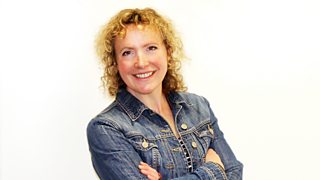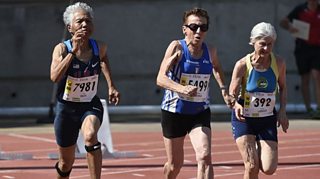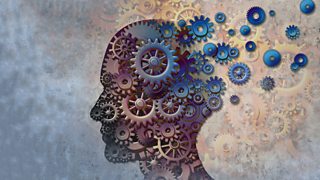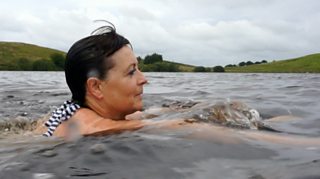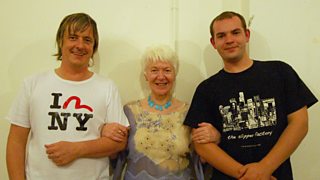Could exercise be the key to having a sharp mind in later life?
An extraordinary study of people during their childhood and old age is revealing how — and why — our brains change as we get older.
In 1932 and again in 1947, almost all Scottish 11-year-olds sat a test which gauged their thinking abilities.
The results lay on a shelf until 1999, when academics at the University of Edinburgh discovered them and invited the children — by then in their 60s and 70s — to be tested again.
As Brainwaves revealed, this study has provided a unique insight into how our brains age. And it continues to do so, because the participants who are now in their 80s and 90s are still being tested.

Key findings from an extraordinary study
Professor Ian Deary reveals some discoveries from the Lothian Birth Cohorts research.
Professor Ian Deary has worked on the project, known as the Lothian Birth Cohort Studies, since 1999.
He explained that one of the key findings from his research is that, when repeating the test for 11-year-olds at an older age, the people who were at the top of their class at school tended to remain in the same tier. Those in the middle and bottom tiers also remained in the same position.
“However, that’s only half the story,” said Professor Deary.

Environmental influences
He continued, “It seems that the way people differ in how much they change in cognitive functions [during their lives], the minority of that is down to genetics.
“We’ve estimated that at about a quarter, which leaves a tantalising three quarters of the change across the life course potentially down to environmental things that might be remediable.”
And testing has indicated one such factor.
“It does seem to be the case that people who are physically fitter and healthier have got better thinking skills in older age than you might expect from their scores in youth,” said Professor Deary.
On ����ý Sounds
-
![]()
Brainwaves
Exercise? Alcohol? Intelligence? How do you keep your brain sharp into old age?
-
![]()
Can exercise reverse the ageing process?
While many in their 80s and 90s may be starting to take it easy, 85-year-old track star Irene Obera is at the other end of the spectrum.
-
![]()
The Trillion Dollar Disease
How will governments find the money and workers to care for people living with Alzheimer's?
-
![]()
Living and Dying with Alzheimer’s
How best to live and die with dementia and the difficult choices people have to make.
-
![]()
Test your lifestyle: how are you ageing?
Find out how your lifestyle might be ageing you
Latest features from ����ý Scotland
-
![]()
'Wild swimming helps me process the grief of losing my son'
The benefits of cold water therapy.
-
![]()
Winter adventures are appealing, but an expert advises caution
Trips in winter require particular knowledge and skills.
-
![]()
The rescuers: Why volunteers risk their lives in mountain emergencies
Landward meets members of the Cairngorm Mountain Rescue Team.
-
![]()
‘Look for the light’ – practical tips to help you through another winter with SAD
Useful advice and tips to combat low moods at this time of year.
-
![]()
How you could be a binge drinker without even knowing
Binge drinking is classed as fewer units than many people may realise.
-
![]()
How chocolate biscuits and drama classes helped one man leave prison behind
The healing power of creativity.
-
![]()
'When people believe in you, it’s life-changing'
Author Graeme Armstrong revisits the man who helped turn his life around.
-
![]()
The 'breath-taking' display of US birds swept on to British soil
Recent storms have brought rare birds to our shores.
-
![]()
Six things we learned about Alan Cumming on Take the Floor (Spoiler: includes accordions)
The actor spoke to Take the Floor's Gary Innes.
-
![]()
How street gangs trap young men in a dangerous cycle of violence
The almost inescapable pull of life in a gang.
-
![]()
Why stylist Gok Wan believes there's no such thing as bad fashion
The fashion expert says we should stop following rules and do what feels right.
-
![]()
Is sending a CV still the right way to apply for a job?
They've been central to job applications for years, but are they worth it?
